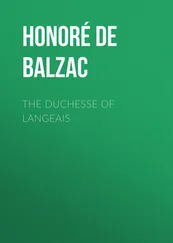Dino Dorothée - Memoirs of the Duchesse de Dino (Afterwards Duchesse de Talleyrand et de Sagan), 1836-1840
Здесь есть возможность читать онлайн «Dino Dorothée - Memoirs of the Duchesse de Dino (Afterwards Duchesse de Talleyrand et de Sagan), 1836-1840» — ознакомительный отрывок электронной книги совершенно бесплатно, а после прочтения отрывка купить полную версию. В некоторых случаях можно слушать аудио, скачать через торрент в формате fb2 и присутствует краткое содержание. Жанр: foreign_antique, foreign_prose, на английском языке. Описание произведения, (предисловие) а так же отзывы посетителей доступны на портале библиотеки ЛибКат.
- Название:Memoirs of the Duchesse de Dino (Afterwards Duchesse de Talleyrand et de Sagan), 1836-1840
- Автор:
- Жанр:
- Год:неизвестен
- ISBN:нет данных
- Рейтинг книги:4 / 5. Голосов: 1
-
Избранное:Добавить в избранное
- Отзывы:
-
Ваша оценка:
- 80
- 1
- 2
- 3
- 4
- 5
Memoirs of the Duchesse de Dino (Afterwards Duchesse de Talleyrand et de Sagan), 1836-1840: краткое содержание, описание и аннотация
Предлагаем к чтению аннотацию, описание, краткое содержание или предисловие (зависит от того, что написал сам автор книги «Memoirs of the Duchesse de Dino (Afterwards Duchesse de Talleyrand et de Sagan), 1836-1840»). Если вы не нашли необходимую информацию о книге — напишите в комментариях, мы постараемся отыскать её.
Memoirs of the Duchesse de Dino (Afterwards Duchesse de Talleyrand et de Sagan), 1836-1840 — читать онлайн ознакомительный отрывок
Ниже представлен текст книги, разбитый по страницам. Система сохранения места последней прочитанной страницы, позволяет с удобством читать онлайн бесплатно книгу «Memoirs of the Duchesse de Dino (Afterwards Duchesse de Talleyrand et de Sagan), 1836-1840», без необходимости каждый раз заново искать на чём Вы остановились. Поставьте закладку, и сможете в любой момент перейти на страницу, на которой закончили чтение.
Интервал:
Закладка:
Paris, May 9, 1837. – Yesterday I had a long visit from M. Royer-Collard, whose admiration for the speech of M. Thiers is at its height. He praises the occasion, the propriety of it, and above all the truth, not only its personal truth – that is to say, its individual sincerity – but its truth with reference to the actual state of opinion, which the speaker alone has correctly appreciated. He said it was one of those speeches over which one could never think too long, which grips the reader more and more, and the effect of which will steadily increase. He admits that the session when MM. Odilon Barrot and Guizot spoke was more interesting to watch, and that the two actors played their parts very well, but that they were merely acting; that they showed themselves good orators, but not statesmen; that both relied upon extremist opinions which were worn out; that M. Guizot in particular was no longer a man of his age, but an émigré ; and that this point had been admirably brought out by Thiers. M. Royer-Collard thinks the speech of Guizot imprudent and irritating, in which respect he says that Guizot followed his arrogant disposition. In short, he says many things; he says them in my sitting-room, but repeats them in the Chamber, at the Academy, to each and all, and makes it his business to do so. This is very useful to M. Thiers, in whose speech there is something too fine and subtle to be understood without a commentary.
I did not go out after M. Royer's call, but stayed at home to read the life of Raphael by M. Quatremère; the book is lacking in warmth and vivacity, but it is well written. It is most restful at the present time to return to the exquisite art of an age when men of genius were complete, because they possessed every shade of genius, if one may use the phrase. Books of this kind give me an inexpressible longing for Italy.
In the evening I looked in at the Austrian Embassy, where Madame de Lieven told me a large amount of gossip from London. One of her stories was as follows: At the last Levée the King thanked the Turkish Ambassador aloud and through an interpreter for postponing a dinner which he was giving, on account of the death of Lady Delisle, his natural daughter, and thus showing him a respect which his own family had refused; this remark was aimed at the Duchess of Kent. At the last Drawing-room the Queen could not be present, as she was ill, and it was held by Princess Augusta; the Duchess of Kent arrived with her daughter; the King heartily embraced the latter without noticing her mother, and seeing Sir John Conroy in the throne-room he ordered the Chamberlain to send him out. Finally, when the Prince of Linange came to his mother's house, the Duchess of Kent, with his wife, who is not his equal in birth, the King sent Lord Conyngham to the Duchess to say that he would receive his daughter-in-law, but could not permit her to enter his private apartments; the Duchess declined to receive Lord Conyngham, and sent a message to say that if he came to pay a private call she would see him with pleasure, but that she would not receive him as the King's messenger, and that he need only write down what he had to say. Lord Conyngham then sent her a letter, to which she replied by an epistle of twelve pages, enumerating all her supposed grievances against the King, and concluding with the statement that if her daughter-in-law were not received as a princess she would never set foot in the King's house again. She had several copies made of the letter, and sent them to all the members of the Cabinet. Lord Conyngham, who told all this to Madame de Lieven, in spite of his Whig principles, went on to say that the position of the English Ministry was unpleasant, as their relations with the King were disturbed and they were unpopular in the country, and that the difficulties concerning the Bank and the progress of affairs in Spain were very unpleasant incidents for the Cabinet.
It is settled that the Duc de Coigny is to be knight-of-honour to the Duchesse d'Orléans. He is naturally impolite, his habits are uncivilised, and he has only one hand, so that he will not be able to offer his hand to the Princess. An equally certain appointment is that of the Comtesse Anatole de Montesquiou as first lady to accompany the Princess, and to take the place of the lady-of-honour, whose delicate health will often prevent her from performing her duties. 64 64 The Comtesse de Lobau.
This is an excellent choice. Madame de Montesquiou is forty-six years of age, her reputation is unblemished, she has been pretty and is still pleasant to look upon, her manners are quiet and simple and are the exact expression of her life and character. No better choice and no person better suited for the position could be found.
The newspapers say that a subscription is being raised in the Chamber of Deputies to print fifty thousand copies of M. Guizot's speech. M. Martin du Nord, one of the members of the present Cabinet, has given a subscription, and thus confirmed the generally accepted opinion that he is secretly a Doctrinaire and a traitor to the Cabinet. Thereupon M. Molé went to the King to ask for the removal of M. Martin du Nord or to offer his own resignation. I have not yet heard the conclusion of this fresh complication.
Paris, May 10, 1837. – At the time of writing yesterday I had not read the Moniteur , which announced the amnesty. 65 65 On the occasion of the marriage of the Duc d'Orléans an amnesty was granted by ordinance dated May 8 to all who were in prison for crimes or political delinquencies.
I knew that M. Molé had long been anxious to see this measure passed, but I think that the speech of M. Thiers encouraged him in his design and accelerated the execution of it. I have heard people talking of nothing else all day. Men's minds are entirely occupied with it, and their attention is thus diverted from the peerage given to M. Bresson, which again is to be explained by this marriage. What a fortunate man he is! Undoubtedly he is capable, but circumstances have helped him with a speed and consistency rarely found in human destiny. To return to the great event of the amnesty, I will say that high society strongly approves of it, the more so as it has arrived unexpectedly and not been extorted by party importunity; so it is an act of mercy, and not of weakness. The sharp-sighted regard it as another act of hostility to the Doctrinaires rather than an act of kindness to the political prisoners – as much as to say that the measure could not be passed while the Doctrinaires were in office, but now that we have separated from them we hasten to grant it. This will isolate them yet more in the country. I repeat there are people who regard this measure as a consequence of M. Thiers' speech, and even as directly due to his influence. The Doctrinaires are most infuriated, and those peers who are friendly to them announce that all the contumacious persons will come up for judgment, and that the peers will then go off to their country seats instead of taking their places. The following story had a wide circulation yesterday: M. Jaubert, in speaking of the amnesty to M. Dupin, said to him: "It is a little hard that after leaving to us all the odium of the severe measures which we have courageously defended during the crisis and danger we should now be deprived of the credit of showing mercy." M. Dupin replied: "It is very sad, but you have one consolation, namely, that Persil will order the medal to be struck." (M. Persil is a Doctrinaire and Comptroller of the Mint.) The saying is a smart one. Those who approve the amnesty also urge, and with some reason, that it will obliterate the ill-effect produced by the excessive precautions on the day of the review.
Yesterday I was at the Ecole des Beaux-Arts, where Sigalon, who has just arrived from Rome, had placed the magnificent copy of the Last Judgment of Michael Angelo, that masterpiece which is fading, like all the frescoes in the Vatican. The copy is the same size as the original, and forms the background of a hall, to which has been given the form and dimensions of the Sistine Chapel. It is the most beautiful and surprising thing that can be imagined. I was quite overwhelmed. Variety, richness, and boldness of composition are so combined that one rests stupefied before the power of such genius. In the same room have been placed casts of different statues by Michael Angelo which also have arrived from Italy, and complete one's admiration for this great man. The statue of Lorenzo de' Medici and the statue of Day and Night are admirable. We then saw the charming gateway to the castle of Anet and the beautiful door of the castle of Gaillon, both masterpieces of the Renaissance; then came the interior courtyard, adorned with fountains and fragments of ancient work, which was very fine. The building in itself is in excellent style; it contains fine models of all classes and ages of art, which will be added to. They form a collection as curious as it is interesting, and add a new attraction to Paris.
Читать дальшеИнтервал:
Закладка:
Похожие книги на «Memoirs of the Duchesse de Dino (Afterwards Duchesse de Talleyrand et de Sagan), 1836-1840»
Представляем Вашему вниманию похожие книги на «Memoirs of the Duchesse de Dino (Afterwards Duchesse de Talleyrand et de Sagan), 1836-1840» списком для выбора. Мы отобрали схожую по названию и смыслу литературу в надежде предоставить читателям больше вариантов отыскать новые, интересные, ещё непрочитанные произведения.
Обсуждение, отзывы о книге «Memoirs of the Duchesse de Dino (Afterwards Duchesse de Talleyrand et de Sagan), 1836-1840» и просто собственные мнения читателей. Оставьте ваши комментарии, напишите, что Вы думаете о произведении, его смысле или главных героях. Укажите что конкретно понравилось, а что нет, и почему Вы так считаете.












